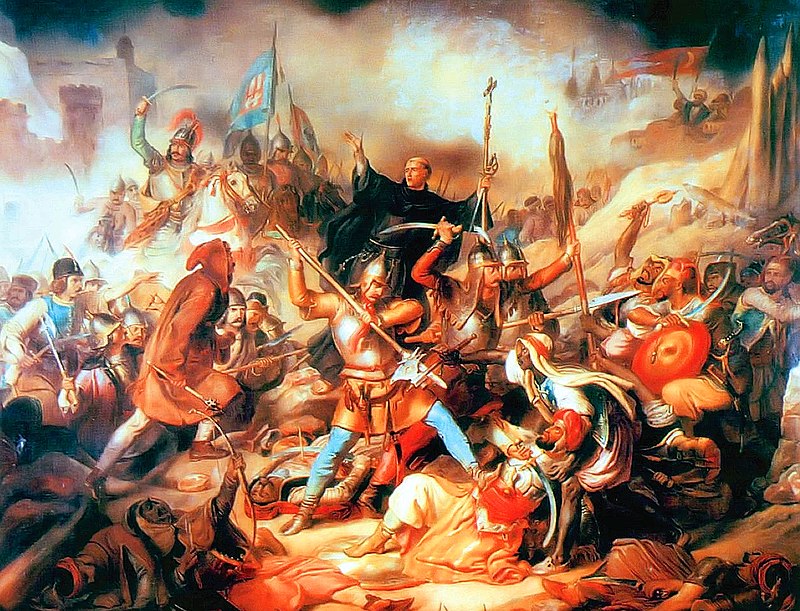I spent a great deal of time thinking about John Hunyadi and the Siege of Nándorfehérvár today, and it was my intention to write a long and detailed essay exploring the meaning and significance of the event and its influence on our own contemporary world, but the home renovations I am currently embroiled in have left me too drained to write the kind of essay that would do Hunyadi or his victory justice. Nevertheless, I still feel impelled to jot down some scattered thoughts about this mostly forgotten historical event.
To put this 537-year-old victory into perspective, it is important to remember Mehmed II conquered Constantinople in 1453, a mere three years before he launched his assault against the Kingdom of Hungary. It goes without saying that Christendom suffered a major defeat at Constantinople. According to some historians and theologians, the loss was so great psychologically that Christendom never fully recovered. After the fall of Constantinople, the Ottomans turned their attention to the West, and the conquest of all of Europe was regarded as a very real possibility. Hunyadi’s victory stalled the Ottoman advance into Europe for about 70 years, but the Kingdom of Hungary eventually succumbed to the Turks and remained under occupation for nearly two centuries.
The Siege of Nándorfehérvár was an extremely big deal in 1456. When Mehmet II began laying siege to Nándorfehérvár, the Pope ordered all church bells across Catholic Europe to ring at noon as a call for Christians to pray for the defenders. Everyone at the time understood that if Hungary fell, Austria and Italy would be next. In this sense, Hunyadi and his troops were not merely defending Hungary, but all of Europe. The noon bell rang when the victory was eventually announced as well, and it has been ringing every day since for 537 years. Yet how many who hear the noon bell today remember or know anything about John Hunyadi, Giovanni da Capestrano, or the Ottoman defeat in 1456?
Of course, Christendom is a thing of the past. To claim Europe, in its contemporary form, reflects or represents any sort of Christendom would be absurd. Perhaps the historians and theologians are right. Perhaps Constantinople marked the beginning of the end of Christendom. What the Ottomans could not conquer from without was slowly but surely corroded from within. No, there is no Christendom anymore. Mere mention of Hunyadi’s victory over the Ottomans probably makes most contemporary Europeans uncomfortable. Few would regard the event as heroic. Even fewer would understand why men like Hunyadi were willing to lay down their lives during the siege.
But this is completely understandable. After all, few contemporary Westerners would be willing to die for anything. I imagine men like Hunyadi and Giovanni Da Capestrano would find this perplexing. They would struggle to understand how people unwilling to die for anything could possibly find anything to for which to live. And is that not the obvious truth of contemporary Europe? The church bells continue to ring every day at noon, yet barely anyone remembers or understands why. And even if they did, very few would actually care.
The Siege of Nándorfehérvár was both a physical and a religious battle in an ongoing spiritual war. This spiritual war continues today. The surface characters and circumstances have changed over time, but the essence of the war and its stakes remain the same, especially for individual Christians living in Europe. No Christendom envelopes European Christians today. No Pope orders the ringing of church bells as a call for defensive prayers. No Giovanni Da Capestrano rallies the simple folk to join the struggle. No John Hunyadi fights to repel enemy forces.
Modern European Christians are on their own and under perpetual siege. Each has his or her own private Nándorfehérvár to defend. When they hear the noon bell ring every day, they should remember John Hunyadi but more importantly, they should use the occasion to pray for themselves and their fellow besieged defenders.
In contemporary Europe, these individual victories are the only ones to be had for the time being, and the only ones that truly count for now. Perhaps the day will come when the noon bell commemorates these as well . . .


 RSS Feed
RSS Feed

